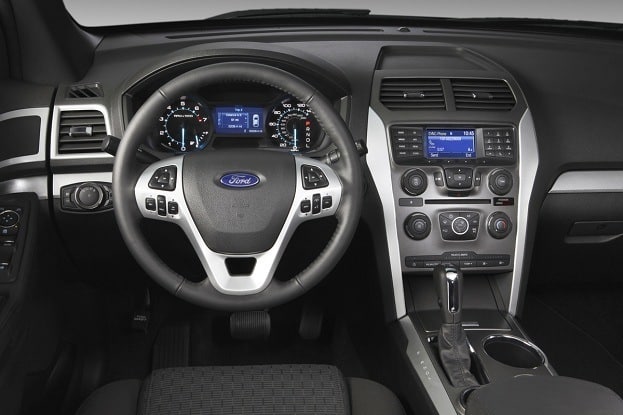When car company Ford Motor Company and computer software magnate Microsoft announced a partnership in 2005, the alliance of the two American corporate icons immediately sparked intrigue. Their collaboration resulted in technology debuting in 2007 introducing a growing motorist base of Ford vehicle buyers with a new way to interact with music and cell phone devices. This week, the SYNC system created through the Ford/Microsoft pairing has crossed the five-year mark since release to the public as well as the accomplishment for being installed in the five-millionth Ford product.
During the mid-2000s, portable electronic device connectivity with automobiles was still out of reach for many motorists. Luxury cars remained the only vehicles harnessing significant integration of electronic infotainment and communication technology. Born as a way efficiently connect and control MP3 players as well as some smartphones, Ford SYNC was given form as a refined paradigm in infotainment technology accessible to common drivers. The voice-activated Microsoft developed system found its way into Ford, Lincoln and the former Mercury brand vehicles in 2007.
My first experience with the Ford SYNC system was in a 2008 Focus where a brand ambassador at an auto show demonstrated the technology. I remembered being impressed by the response to the Ford SYNC voice command. The demonstration ended prematurely in a somewhat comedic fashion when power was unexpectedly cut to the vehicle. It was enough time to witness quite a remarkable connectivity solution that initially led me to look at Ford differently. It’s important to note that Ford Motor Company was pulling itself from financial ruins at the time of SYNC’s release. Combined with dramatic restructuring and new car design, the incarnation of SYNC gave Ford a technological edge that Toyota and General Motors have only recently responded to the challenge.
Ford SYNC was received as bold piece of in-car technology designed to create more placid situation using devices while operating a vehicle. The hands-free calling ability of Ford SYNC technology has proven much helpful as many regions and governments had began adopting laws in reaction to distracted driving. By 2010, two million SYNC-equipped Ford products were sold with the auto company following up on promises to make the technology more widespread in their vehicle line-ups. As drivers began seeking out the advantage of the electronic technology, Ford SYNC evolved so Apple IOS, Blackberry, Android and obviously Windows smartphones can be paired with the onboard system.
Growing in prevalence, Ford SYNC added capabilities as features such as 911 Assist, Vehicle Health Report and an App interface called AppLink were incorporated with the onboard vehicle technology. SYNC Services also allowed new Ford drivers to access news, traffic information as well as turn-by-turn direction through a cloud-based system with MyFord Touch.
As the Ford SYNC has proliferated across more than five million vehicles, it seems the automotive and technology world still has not completely appreciated the how this connectivity solution has changed the marketplace. Before the Ford and Microsoft collaboration, would it be believable that United States branded companies could trigger advancements for in-car infotainment? By making SYNC technology widely available in common vehicles, you have to admit Ford and Microsoft have accomplished an objective that has made them both leaders.
Information, video and photo source: Ford Motor Company


